“If you go fishing to just catch fish you’ll be disappointed" – Adrian Smith talks Iron Maiden, vintage Marshalls and the joy of angling
Iron Maiden’s iconic guitarist on his two big passions, and what's next for the metal legends
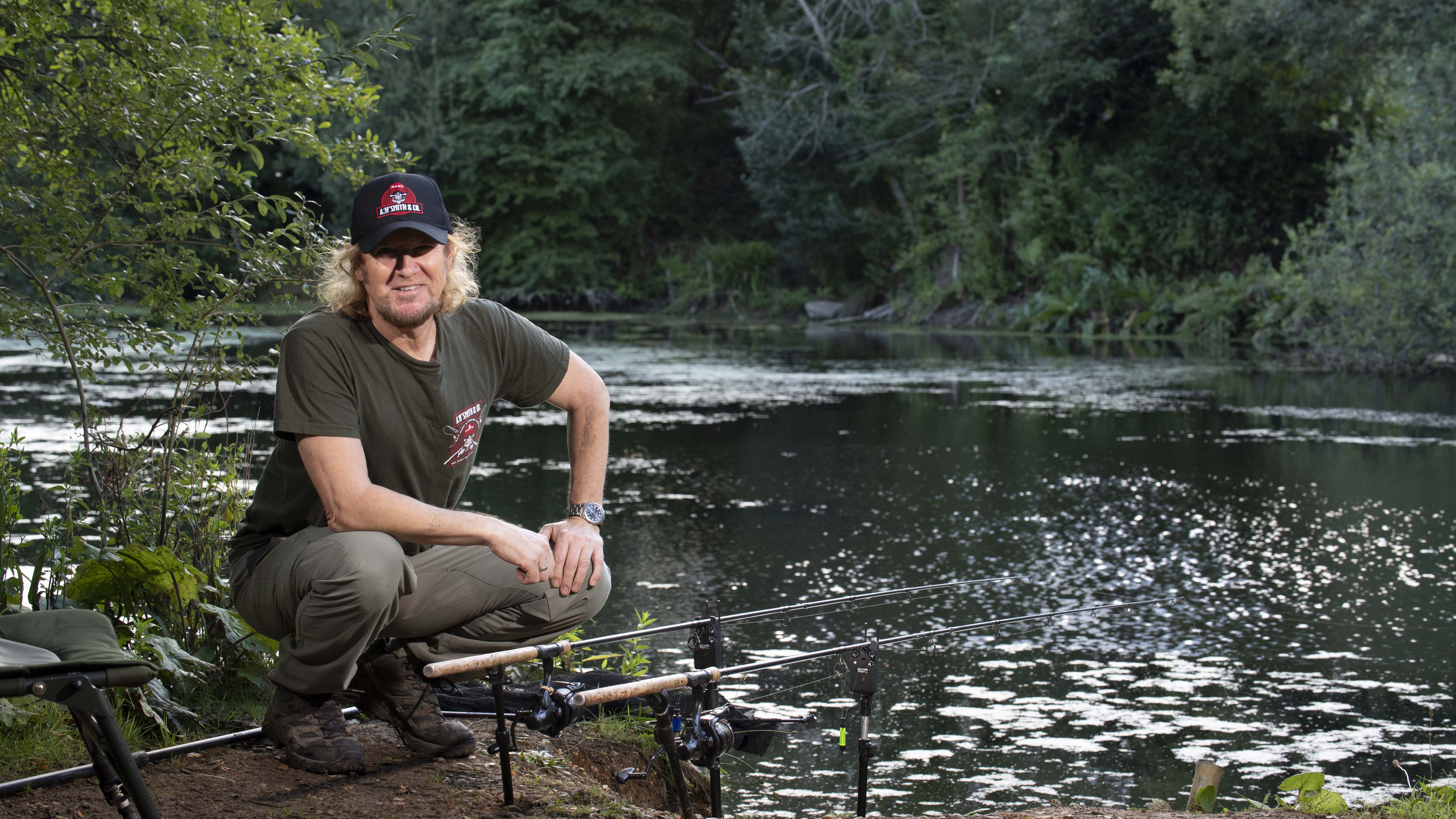
Enthusiastic tennis player, classic rock fan, compulsive angler and Iron Maiden guitar player Adrian Smith has a book out that reads as part fishing and travel stories, part memoir, and those looking to get a bead on what makes Smith tick as artist and man will gain a lot of insight from it.
Published by Virgin Books, Monsters Of Rock and River charts Smith’s childhood, growing up in Hackney, east London, finding some inner-city escape in the company of his father as they’d take to the city’s canals in search of fish.
That search soon takes Smith further afield, and remains a constant as he grows up and meets a bunch of fellow long-hairs with an ear for playing rock – only faster, with a little more tempo, and with a taste for the theatrical.
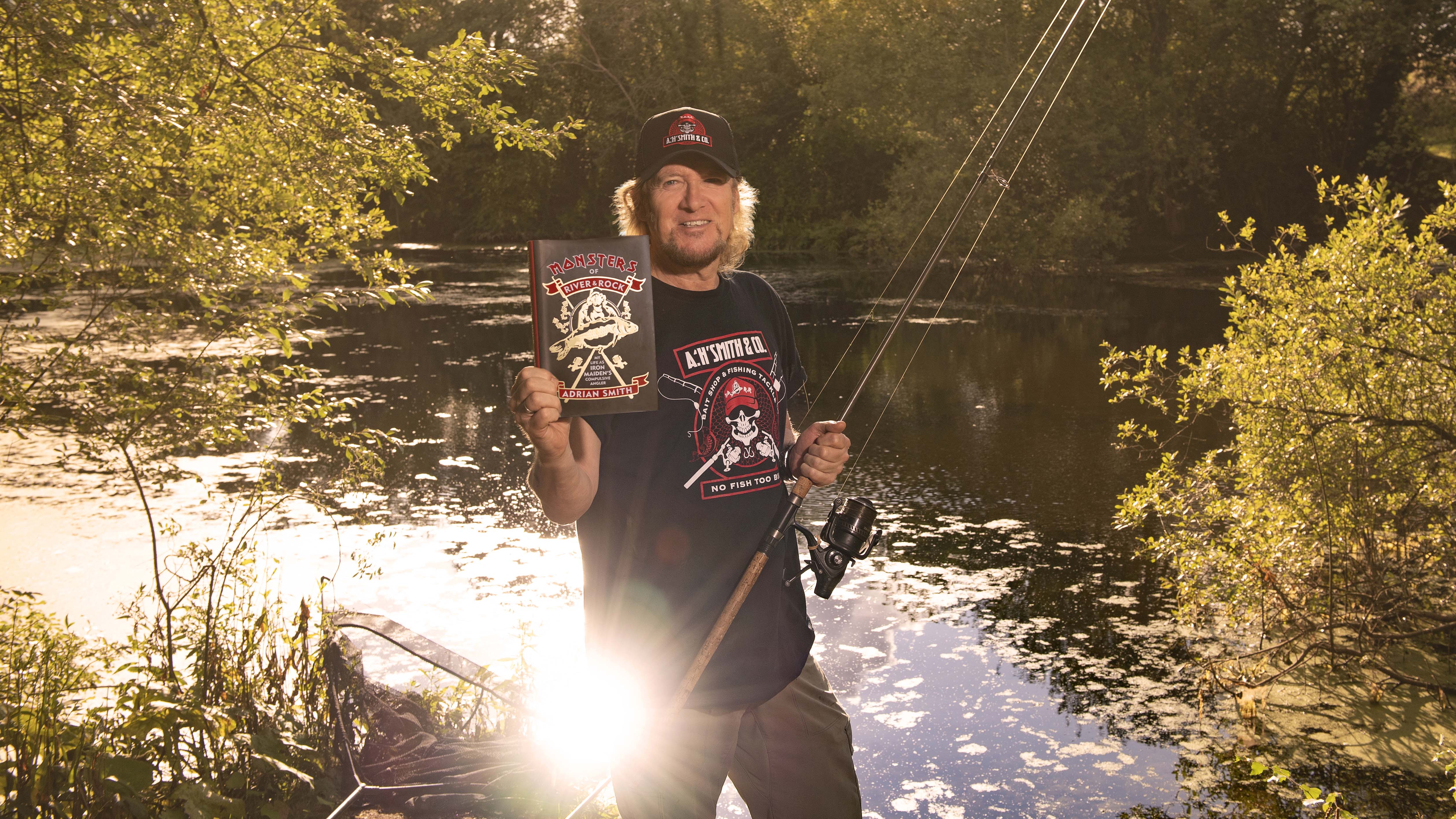
This being MusicRadar, we don’t tend to talk tackle so much – mention the word “worm” and we’d picture one of Electro-Harmonix’s more crazy modulation pedals. But if you have ever wanted a shared universe bridging the (largely) tranquil pastime of angling with the hurly-burly of playing in a stadium-filling metal band, well, the book is essential reading, as is this interview.
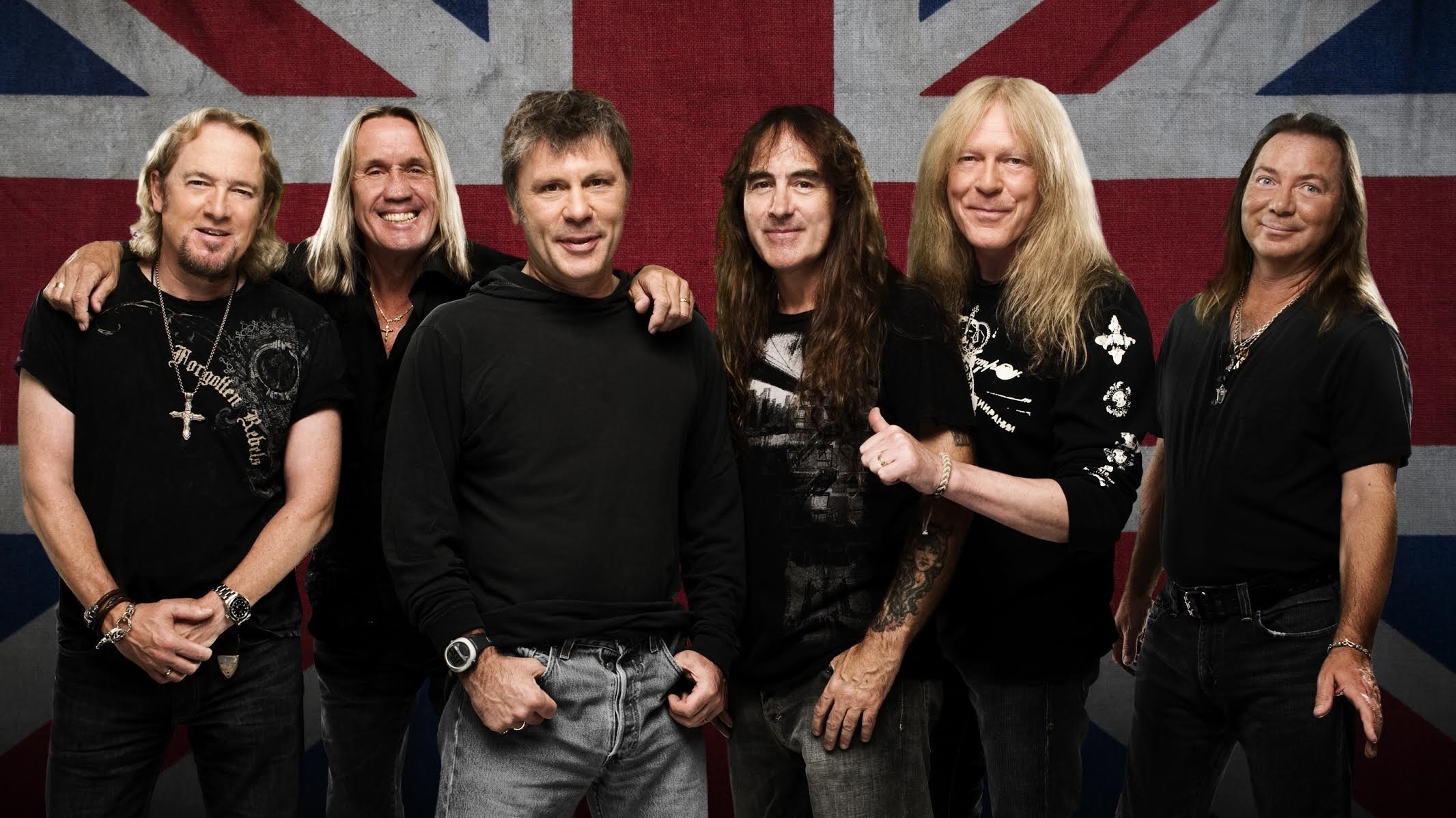
And, of course, there will be gear talk and music too. But what is interesting about Smith’s story is not just that contrast between the two worlds, which was what initially captured Smith’s imagination when someone suggested he wrote a book, but how the world of fishing informs the music.
We live in a world that’s always on, 24/7. There are few escapes, but as Smith says here, that time spent in the great outdoors – Canada, Ecuador, Regents Canal by Cambridge Heath Gasworks, can do wonders for the creative spirit. That goes for anything. Cross-stitching, baking, cross-country skiing, etc. As Wilson Pickett famously sang, take your pleasure where you find it…
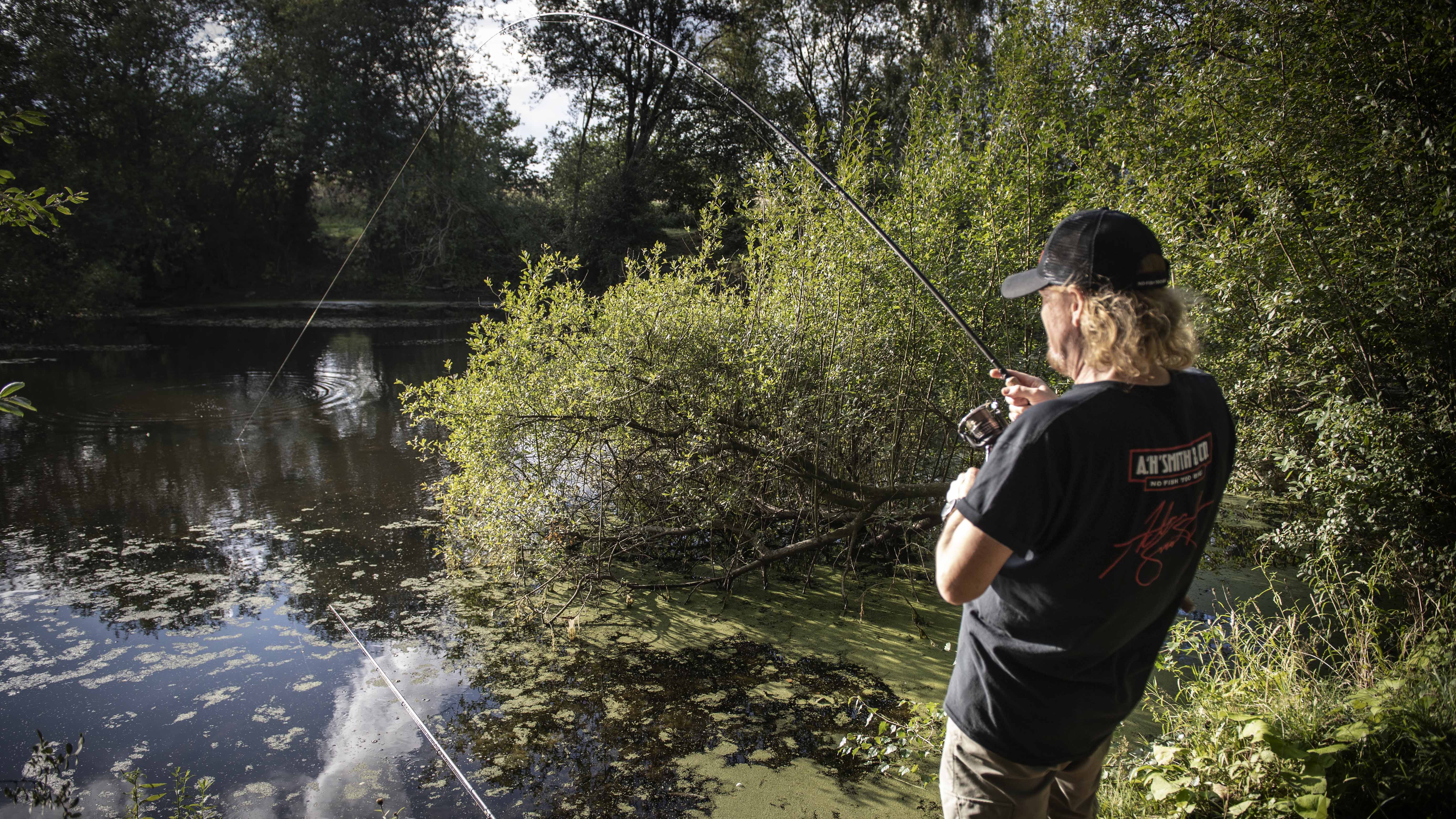
This is a fishing book. But it reads a little like a memoir and a travelogue. Did it start as a memoir first or a fishing book?
Want all the hottest music and gear news, reviews, deals, features and more, direct to your inbox? Sign up here.
“It started off as a fishing book, but I thought I’d incorporate some autobiographical stuff, and also sell against the backdrop of being in Iron Maiden. I thought it was an interesting contrast, of being in a band and the peace and tranquility of going fishing.
“It is a fishing book but the fishing is more anecdotal as opposed to technical. There are a couple of chapters where I really wanted to concentrate on the fishing, because it is a passion of mine, but generally speaking, take Canada for example, there is fishing in there but it is more about the bear encounters, driving through this wild country and seeing moose and all this wildlife. It is about fishing but it is the things that happen around the fishing trips you go on.”
Exactly, fishing is more than about the fishing.
“If you go fishing to just catch fish you’ll be disappointed. [Laughs]”
Sometimes it’s simply about finding that sense of peace, and for you, that was by the water.
“Well, my Dad used to take me when I was very young. We’d go to the canal, and – I describe it in the book – the Cambridge Heath Gasworks stretch was grim. It looked really grim, all concrete, and the spectre of it, the gasworks, but in the canal there were actually fish. I was surprised.
“They were beautiful as well, beautiful roach, vivid colours, perch, because the water was very clear. That got me going on fishing, and then a little later we would go into the country, into Hertfordshire, which nowadays is probably really built-up, but at the time it was very unspoiled, and going out there on a Sunday was like a holiday for me.
“I absolutely loved it. It was a break from growing up in Hackney, which is inner city, and while not being the most-rough place it was pretty rough. You had to watch yourself out there, so it was nice to get out in the country and breathe, y’know!”
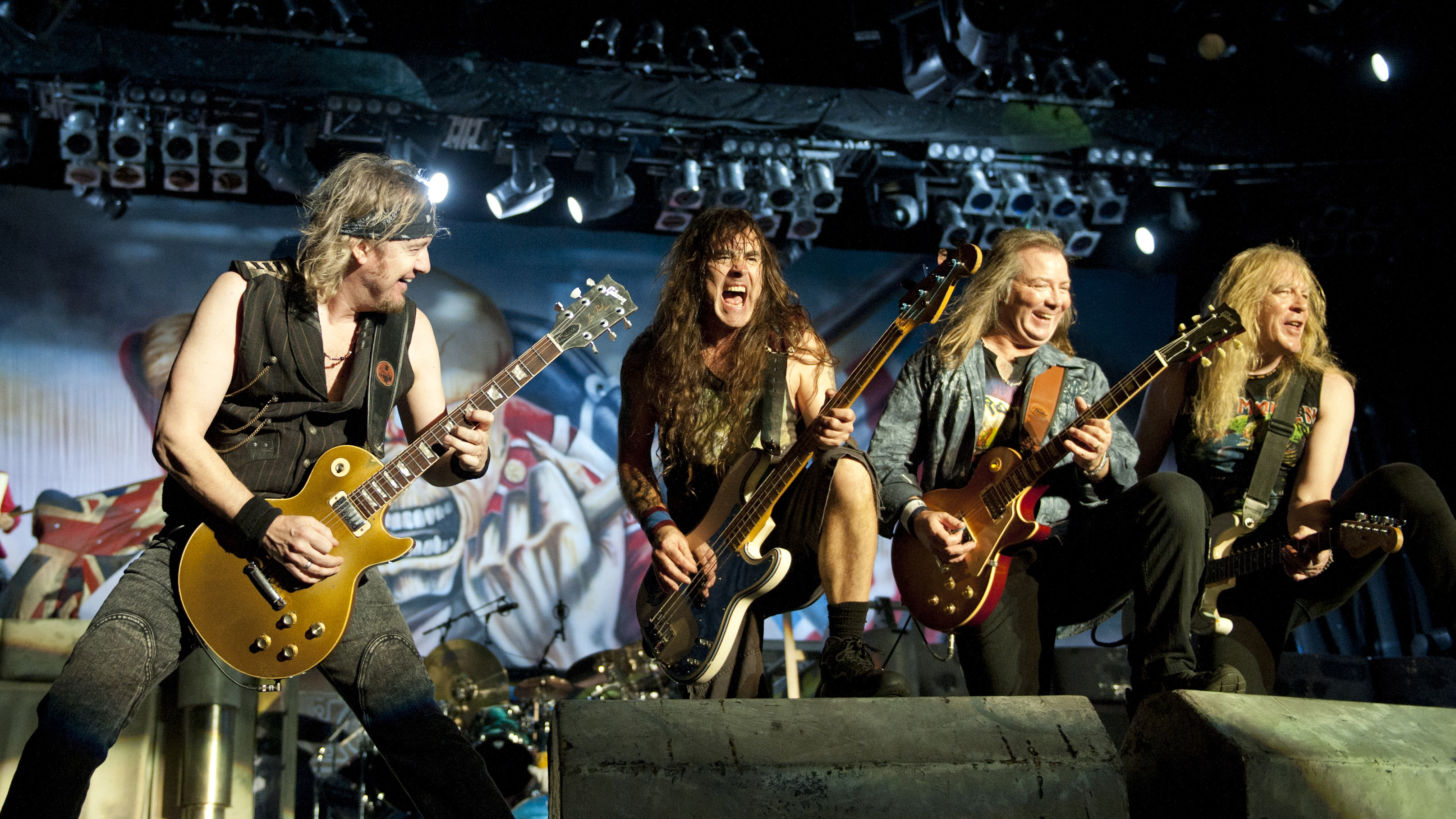
"Some people see music or sport as a way out of the humdrum of the working class inner-city life… There’s nothing wrong with the factory job but you dare to dream, and for some of us it works out.”
The Hackney you describe is one of the past, a little more rough and ready, maybe even a little dangerous. How did that contribute to finding Iron Maiden’s sound? There’s an energy to the city, something intangible, but if feels like it leeches into the sound.
“I suppose so, yeah, that has got a bearing on it. So many bands came out of Birmingham – Zeppelin, Sabbath, those heavy bands from the Black Country. A lot of bands came from Glasgow, a tough area… New York. You think about what is beyond the city. ‘There must be something beyond this!’ [Laughs]
"Some people see music or sport as a way out of the humdrum of the working class inner-city life… There’s nothing wrong with the factory job but you dare to dream, and for some of us it works out.”
Let’s get philosophical. You need imagination to fish; otherwise, how could you imagine catching anything. Has it been useful for you creatively?
“Yeah, I think so. Definitely. In the book, there is a great Billy Connolly quote: ‘Fishing is like meditation with a punchline.’ You get lost, watching your float, watching your rod tip, casting your fly or whatever, and hours and hours go by and maybe you haven’t thought of anything and you feel refreshed. Of course, maybe you will get a fish but I definitely think it is.
"In the '80s, we toured constantly. We didn’t have a life outside of the band, but when I did, and I went fishing and went back to the band, I was more refreshed and ready to work”
“I didn’t fish for many years when I was getting into music. I thought I had to be dedicated. When you are young, you need to be focused on your career, and try and set yourself up for later life, and that’s what I did.
“Once you establish yourself, I went back to fishing and I found it did help [creatively], yeah. To get away from the band. In the '80s, we toured constantly. We didn’t have a life outside of the band, but when I did, and I went fishing and went back to the band, I was more refreshed and ready to work.”
The creative process is not unlike fishing. You start with nothing, by the end of it you can still have nothing, but you’ve got to prepare all the same to give yourself the best chance of capturing the best idea.
“Yeah! [Laughs] I have to prepare to go on the road. I have never been one for practising much but probably over the last 20-odd years I have more of a practice regime to prepare for going on the road.
"By the time we get to rehearsal we have been playing two or three hours a day, and I have been for a month beforehand. You’re on top of it. Like fishing, the more you prepare the more you enjoy it. It’s as simple as that. There are are parallels in that. Always be prepared, as they say… Ever the Boy Scout!”
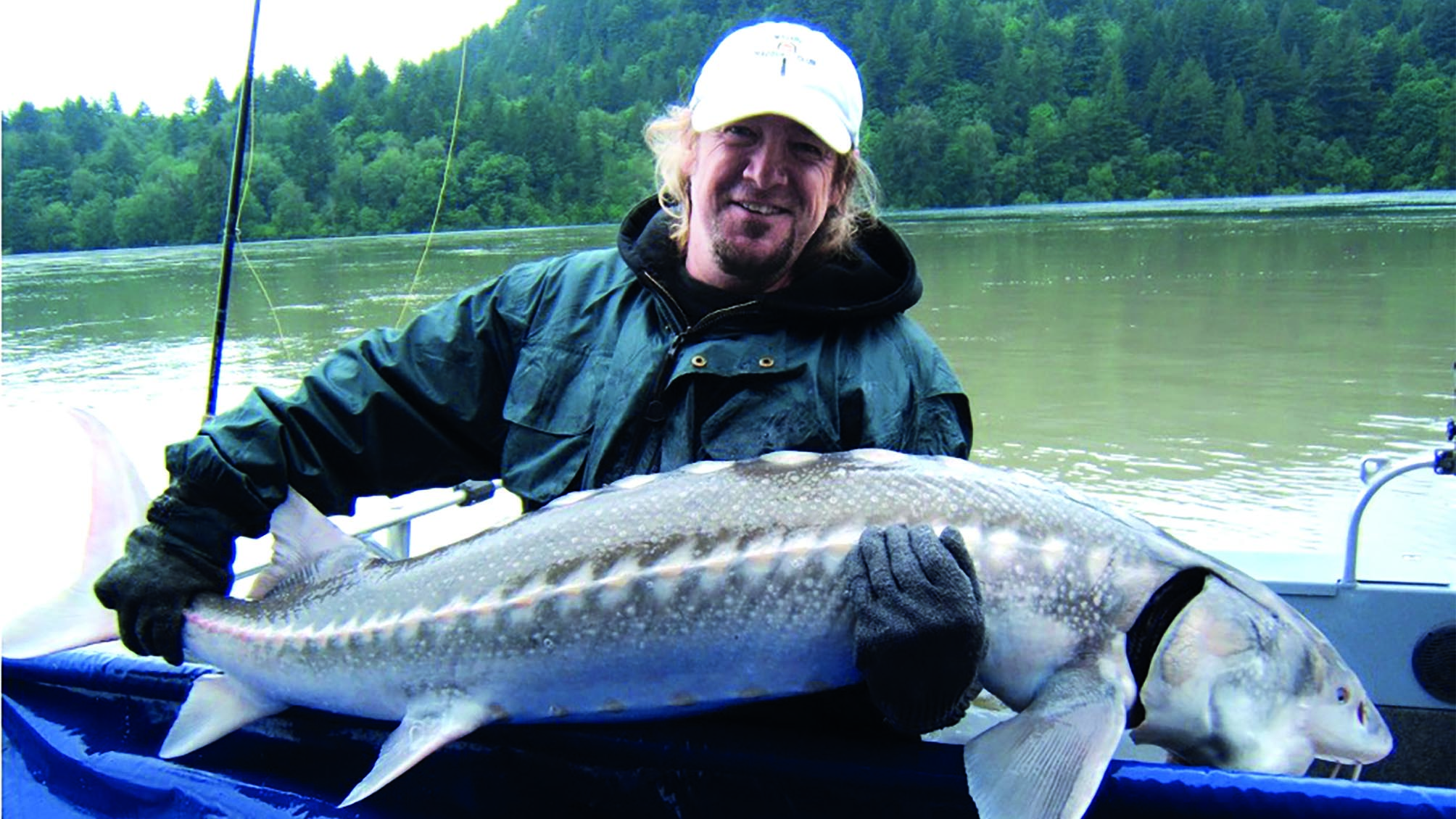
"I have done a collaboration with another artist. He is a really good singer, a great guitar player, and I can’t name it at the moment!"
Besides writing memoirs and all that. What have you been up to?
“Well I have done a collaboration with another artist. He is a really good singer, a great guitar player, and I can’t name it at the moment! It’s not coming out just yet and I don’t want to reveal too much. But I have done an album.
“I write at home. I spent a lot of time working on my singing. I did a lot of cover versions to try and improve my voice. I’ve got my studio at home, and during lockdown it is great to be able to go in there. Again, you can get lost in that world, in creating, and it is great. I have been in my studio and I have got my fishing, so that has kept me more than occupied.”
Lockdown is awful, no two ways about it, but it is rare to have a chance to enjoy such an abundance of time to play guitar guilt-free. What do you tend to play when at home?
“It’s not a regimented regime. In fact, I haven’t played much guitar for a few months, but at the beginning of lockdown I was just doing cover versions of Bad Company and Hendrix, stuff like that, just to keep myself amused.
"I’ve got the studio, so I’d just record it all. I may be putting those out at some point. I don’t know. I did some videos for my own amusement but some people might find them interesting.”
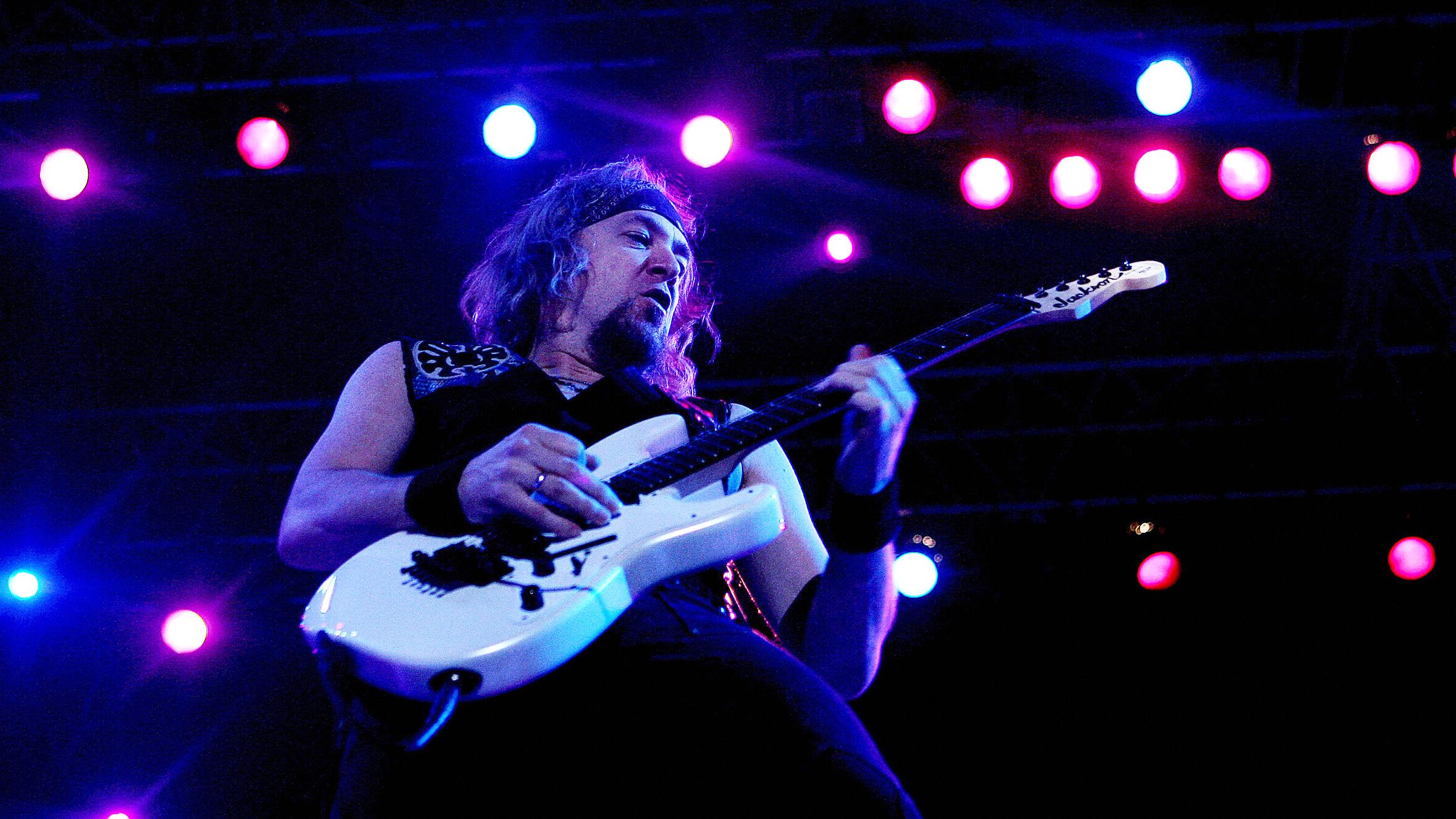
"With Maiden, I’ve always struggled with the straight Marshalls, because some of the music was quite complicated"
What is your setup like at home?
“I’ve been digging a few amps out of the garage. I found an old Marshall that I used to use back in the 80s, a JCM800. I think it might have been late 80s, no bells and whistles on it at all – apart from a master volume – and I plugged that in and it sounded amazing.
“And then it blew up unfortunately! Which is the trouble with old, vintage amps. [Laughs] But it sounds fantastic, a very natural sound like the old '70s rock bands, Free, Bad Company. It was the sort of amp those bands would use.”
The JCM800 is a thing of beauty. The master volume made it a little more useful than its '70s counterparts.
“Yeah, you don’t end up plugging all these weird boxes into it, and joining up the channels and all that. But with Maiden, I’ve always struggled with the straight Marshalls, because some of the music was quite complicated.
"Something like Phantom Of The Opera, you couldn’t get away with [just] that slightly distorted AC/DC sound. There was too much going on, so I had to use [Ibanez] Tube Screamers and a [MXR] Distortion + to get more gain out of it. It needed more help, especially if you were onstage.”
“I used to spend ages messing with my tone onstage, to the point where it was driving me mad"
Finding that sweet spot with gain is all-important – you need the balance between clarity and drive
“I used to spend ages messing with my tone onstage, to the point where it was driving me mad, and I think nowadays I am a bit more philosophical. I’ve got my setup, and if it doesn’t sound good then I change the way I play it rather than adding in another pedal.”
“There is a bit of an art to it and it is something that I am probably more aware of that than the other guys"
With three guitarists in Iron Maiden. Is it difficult to find that space in the mix?
“You’d have to ask the sound engineer! [Laughs] I mean, live, I’ve got my sound and it seems to blend pretty well. No, it works very well live; in the studio, we have problems with intonation and three guitars. I watch what the other guys are doing and I try to vary my playing.
“It’s usually on the chords; like, if three of us play an E on the seventh fret, an E with an open bottom E string, it can sound a bit sour because you’ve got all those fretted notes, so I try and find another version to make it blend in and make it fat.
“The intonation has to be right. It’s very simple but it’s very important. The lead stuff and the harmonies take care of themselves because you are playing single notes, and you have vibrato in there. You can bring it in tune with bends.
“There is a bit of an art to it and it is something that I am probably more aware of that than the other guys. They tend to just fire away. Fire at will, if you like! [Laughs] And I kind of step back and listen and see what I can do to enhance it in the studio.”
You’ve got to be careful. It can sound cool, almost with a chorus effect, but get it wrong and it’s sounds a fire at the zoo.
“Yeah, exactly!”
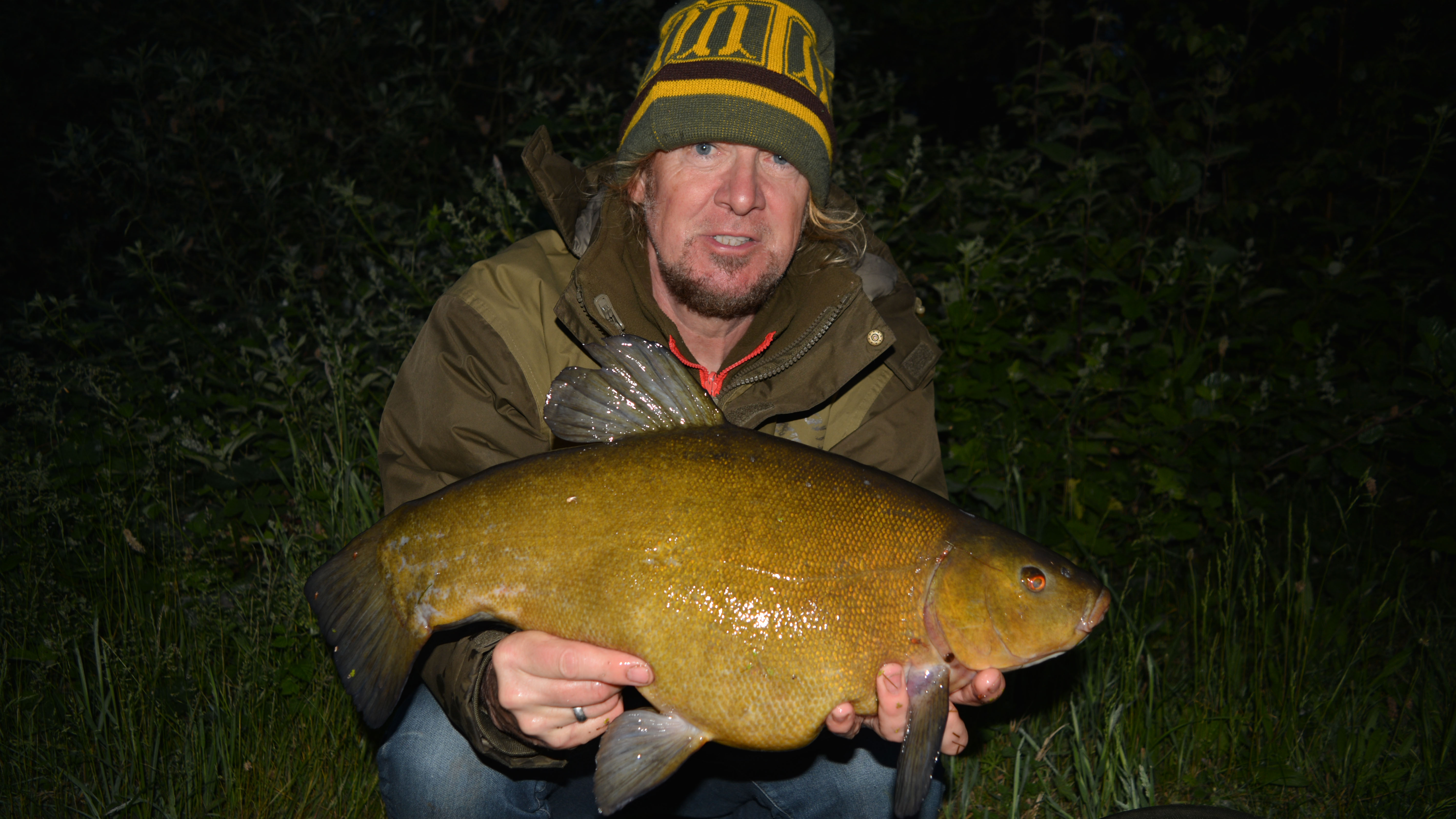
"I just had an obsession with big tench"
What is it about the humble tench that you love so much?
“I have fished all over the world; for bonefish in the Caribbean, all sorts of weird and wonderful trips. I’ve fished up in the Andes, in Ecuador, thousands of feet about sea level, but my heart is in England and the lakes, and the tranquility – which is getting hard to find, by the way.
"I just had an obsession with big tench. You can go and catch tench, fine, but I wanted to catch a big one, a special one, and on and off it took me 10 years.”
The tackle shop plays an important role in the book. They are a bit like guitar stores, a place where people can share ideas. They are part of the community.
“Unfortunately, like a lot of retail, the tackle shops are closing down, but I think it is really essential that we keep them because they are the soul of the angling community. People go in there and they meet each other and they have a cup of tea, talk fishing, and you can’t get that on the internet. Guitar shops are the same, exactly the same.”
Lastly, the $10,000 question: what’s next for Iron Maiden?
“Ooh! [Sighs] Good question. I mean, who knows. We have planned a tour for next year. It’s all planned out and hopefully it will come together but, with this virus, you just don’t know. The music business is suffering as are a lot of other areas in life, and we just have to wait and see. We are hoping that we can go out next year and we can’t wait to do that.”
Adrian Smith’s Monsters of River and Rock: My Life as Iron Maiden’s Compulsive Angler is out now on hardback, paperback and for Kindle.
Jonathan Horsley has been writing about guitars and guitar culture since 2005, playing them since 1990, and regularly contributes to MusicRadar, Total Guitar and Guitar World. He uses Jazz III nylon picks, 10s during the week, 9s at the weekend, and shamefully still struggles with rhythm figure one of Van Halen’s Panama.
